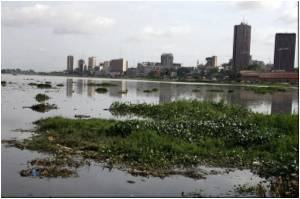Media reports indicate that the water in the canals and irrigation channels in the L'Albufera Natural Park in Valencia contain cocaine, ecstasy and a further six drugs.

"The results confirm the presence of drugs such as cocaine, amphetamines, codeine, morphine and cannabis in the surface waters of the L'Albufera National Park at levels ranging between 0.06 and 78.78 nanograms/litre", Yolanda Picó, lead author of the study and a senior professor in the Department of Nutrition and Bromatology at the UV, tells SINC.
Scientists from this university and the Desertification Research Centre (CSIC-UV-GV) analysed the presence of 14 kinds of illegal drugs – including heroin, cocaine and ecstasy – in 16 canals and irrigation channels in the natural park. The study looked for the residue these drugs leave behind in human urine after they have been taken, and which end up in the water.
The results, published in the journal Analytical and Bioanalytical Chemistry, positively showed the presence of eight kinds of drugs, particularly cocaine and ecstasy. "Cocaine and its metabolites (such as benzoylecgonine) were ubiquitous in all the samples taken, while ecstasy (3.4-methylendioximetamphetamine, or MDMA) was also found very frequently", Picó explains.
The greatest drug concentration and frequency was found in the north of the park, above all in the area of the Poyo ravine. Waste water is regularly discharged in this area, and it also has the highest population density (almost 70% of the total population), as well as industry and nightclubs.
The researcher points out that this "indicates, with increasing likelihood, that drugs are reaching the sewer and channel systems, and that in many cases they could be affecting the irrigation channels and waters of the L'Albufera lake".
Advertisement
A risk for the wetlands
Advertisement
"The health problems potentially caused by consuming these, added to the fact that these residues are still strongly pharmacologically active, may have consequences for land organisms and aquatic fauna", said Picó.
The L'Albufera Natural Park is one of the most important wetlands in Europe because of its biodiversity of flora and fauna, and because it is a key area for migratory birds. The area is a SPAB (Special Protection Area for Birds), is on the List of Sites of Community Importance for the Mediterranean Biogeographical Region, and is covered by the RAMSAR Convention on Wetlands.
Paradoxically, the park is surrounded by cities, industries, farms, shopping malls and leisure centres. The wetland is bordered by the Mediterranean highway and the V-31 motorway, and crossed by the Saler motorway and other roads. The L'Albufera is also affected by pressure from the 12 urban centres – including the city of Valencia – and the 14 municipal districts that surround it.
Source-Eurekalert










